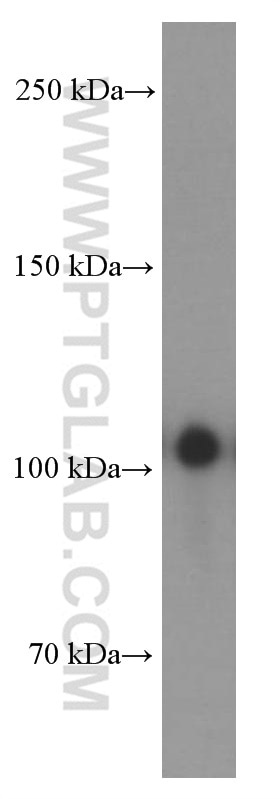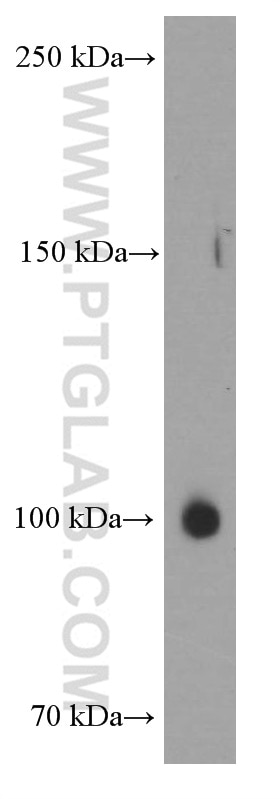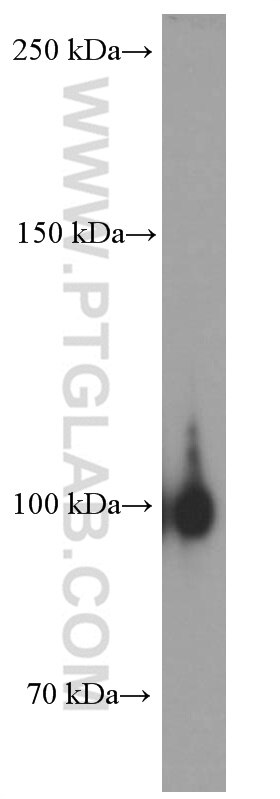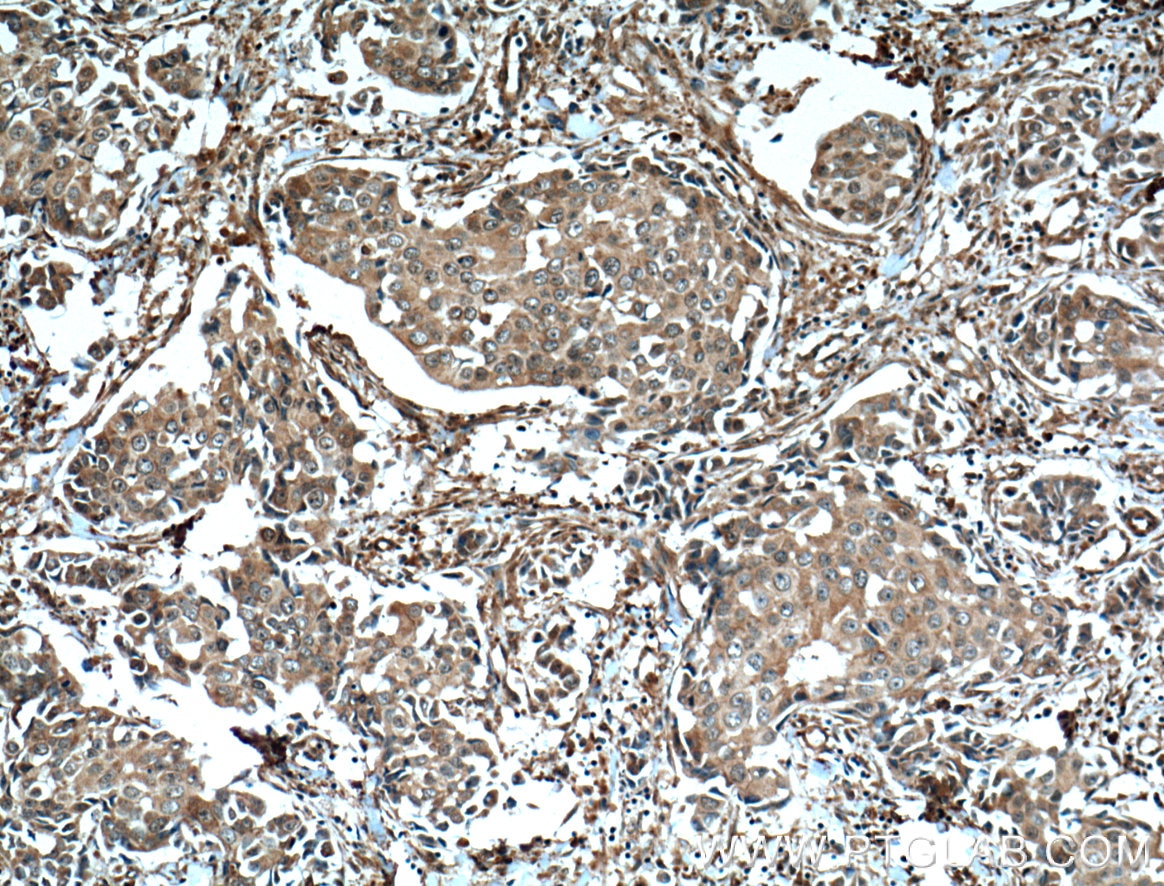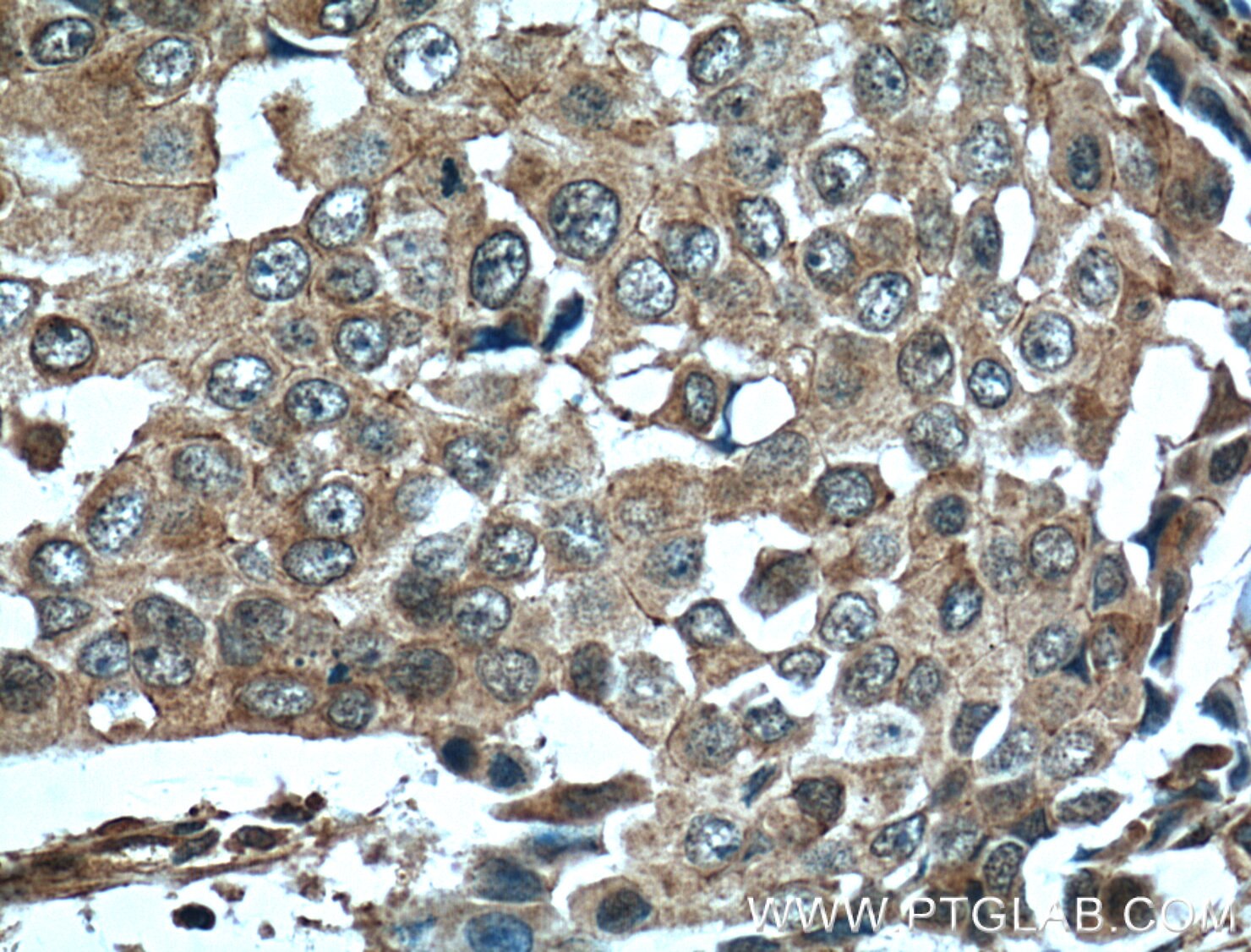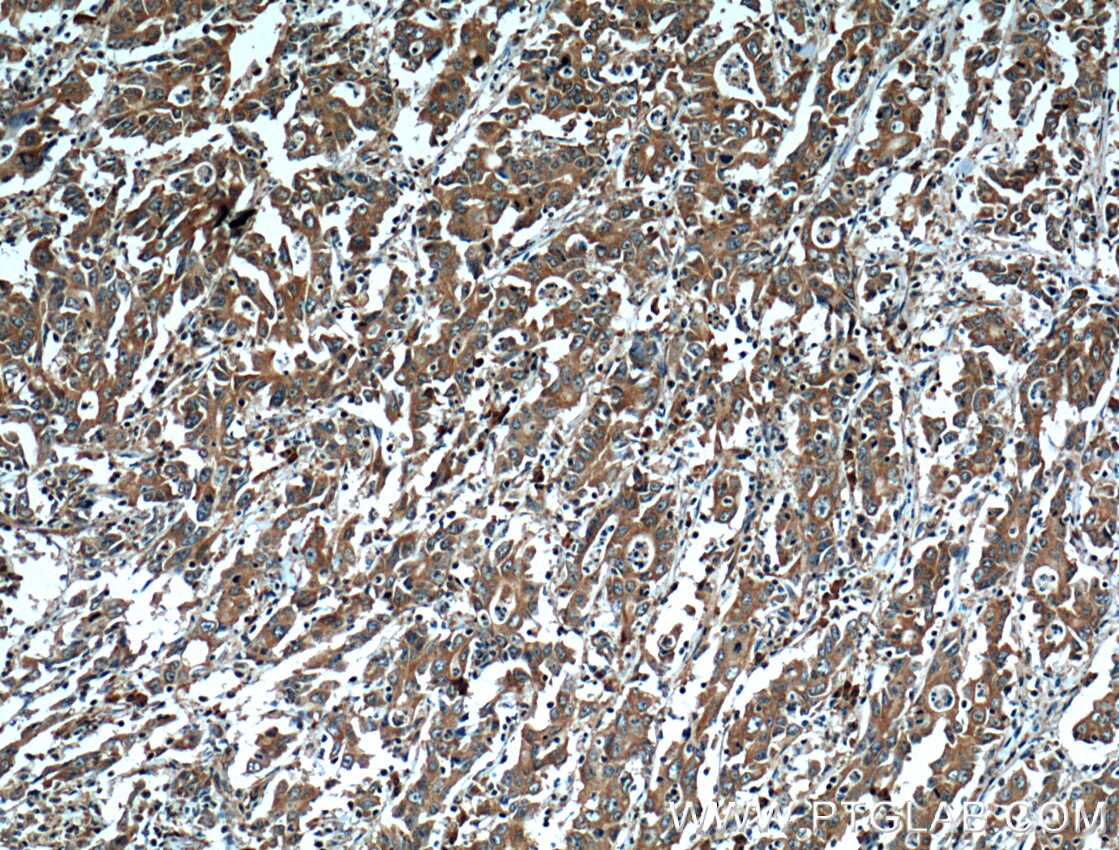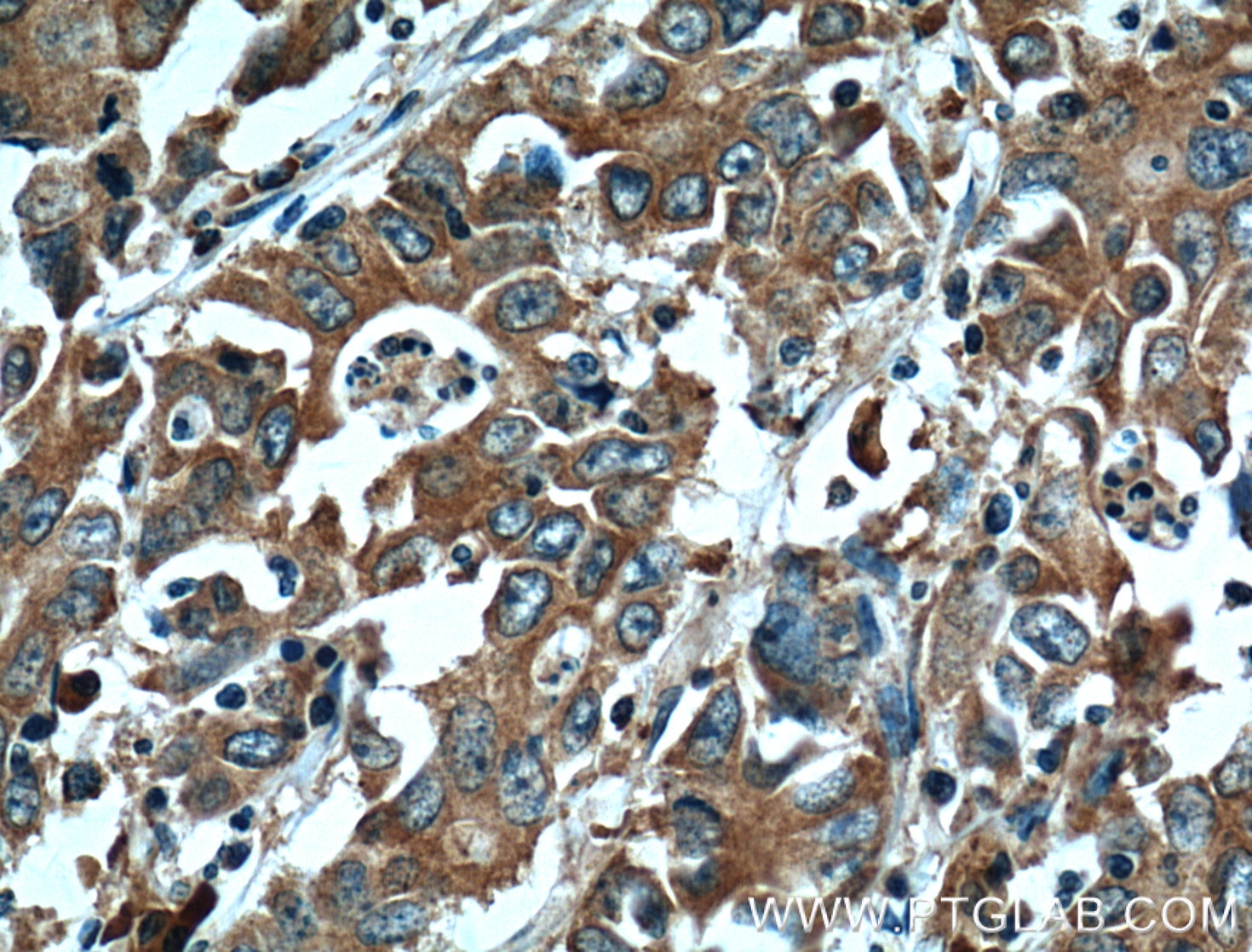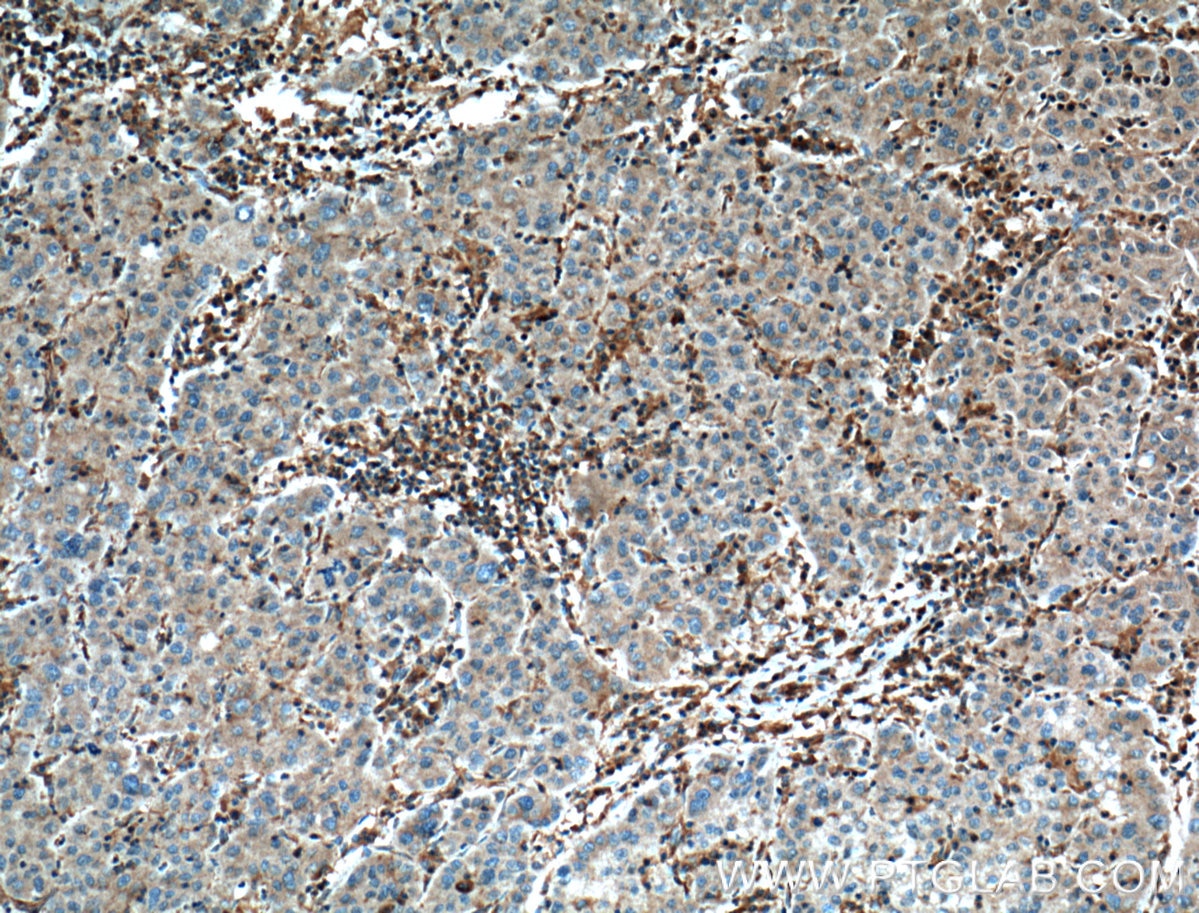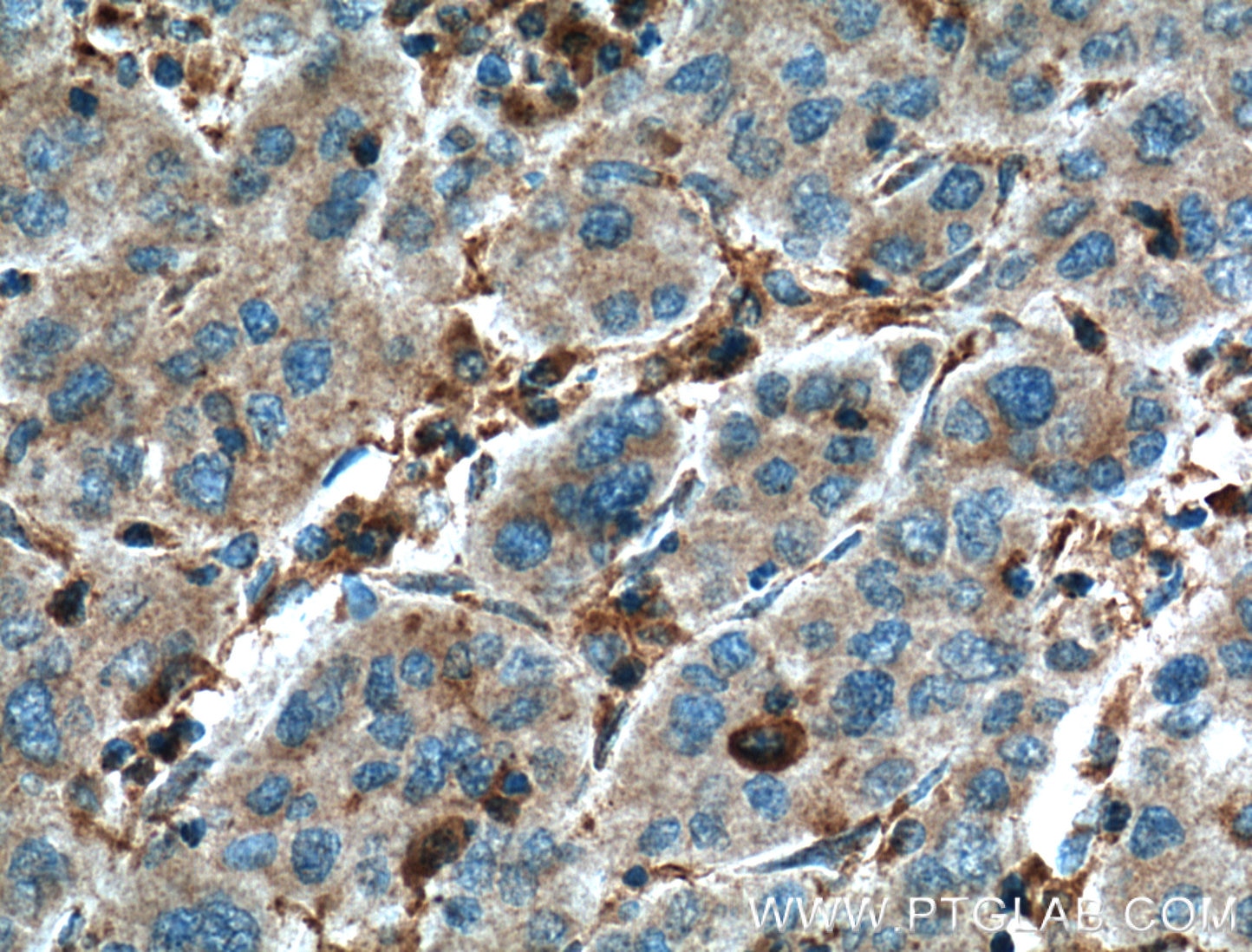EPHA1-specific Monoklonaler Antikörper
EPHA1-specific Monoklonal Antikörper für WB, IHC, Indirect ELISA
Wirt / Isotyp
Maus / IgG1
Getestete Reaktivität
human
Anwendung
WB, IHC, Indirect ELISA
Konjugation
Unkonjugiert
CloneNo.
1B7C3
Kat-Nr. : 60155-2-PBS
Synonyme
Geprüfte Anwendungen
Produktinformation
60155-2-PBS bindet in WB, IHC, Indirect ELISA EPHA1-specific und zeigt Reaktivität mit human
| Getestete Reaktivität | human |
| Wirt / Isotyp | Maus / IgG1 |
| Klonalität | Monoklonal |
| Typ | Antikörper |
| Immunogen | Peptid |
| Vollständiger Name | EPH receptor A1 |
| Berechnetes Molekulargewicht | 108 kDa |
| Beobachtetes Molekulargewicht | 108 kDa |
| GenBank-Zugangsnummer | BC130291 |
| Gene symbol | EPHA1 |
| Gene ID (NCBI) | 2041 |
| Konjugation | Unkonjugiert |
| Form | Liquid |
| Reinigungsmethode | Caprylsäure/Ammoniumsulfat-Präzipitation |
| Lagerungspuffer | PBS only |
| Lagerungsbedingungen | Store at -80°C. 20ul Größen enthalten 0,1% BSA. |
Hintergrundinformationen
EPHA1, also named as EPH, EPHT and EPHT1, belongs to ephrin receptor subfamily of the protein-tyrosine kinase family. EPH and EPH-related receptors have been implicated in mediating developmental events, particularly in the nervous system. Receptors in the EPH subfamily typically have a single kinase domain and an extracellular region containing a Cys-rich domain and 2 fibronectin type III repeats. Ligands in the ephrin-A subclass, including the prototype family member ephrin-A1 (B61), are membrane associated through glycosylphosphatidyl-inositol linkages, whereas ephrin-B subclass consists of ligands with transmembrane domains. The general role of the Eph family is in mediating repulsive cell-cell interaction.
